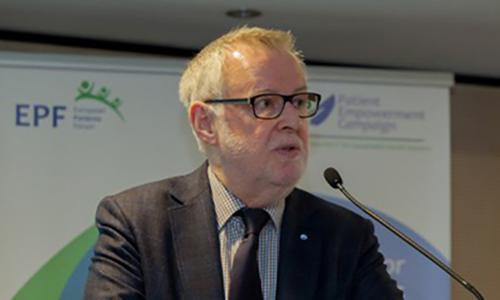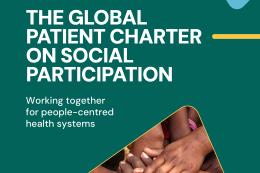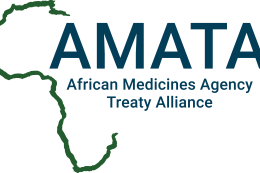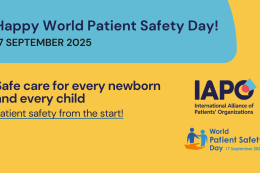'We can only be strong together'

I have been President for nearly 10 years and have represented EURORDIS on the EPF Board since 2003.
EPF is European wide and covers all chronic diseases. It works with European parliament and is involved in policy, legal issues, and supporting all patients.
Why are you personally involved in the work you do?I had a skin problem in my childhood which led to some time in hospital. The memories are still with me today.
In 1984, I was part of a group which gathered representatives from various fields involved in chronic diseases: healthcare, social care, schools, labour and insurance. We decided to start a centre for families living with chronic diseases – the Agrenska Centre in Sweden. In 1998 the Centre became members of EURORDIS.
I can’t accept that when a family has a child with a chronic disease, they are often struck twice: firstly, with the difficulties of dealing with the disease, and secondly, with having to fight the health system to get the support they need.
We think it’s important to gather the true story of living with a chronic disease, and then to make sure the big five – healthcare, schools, social care, labour and insurance – have the knowledge they need to support families living with chronic diseases.
We do this by gathering knowledge, supporting the patient community to grow and interact with the big five, and then we fight on their behalf in EU legislation.
What is your biggest achievement as an organization?For many years we have told governments, hospitals and providers, ‘no action without us’. There has been a change in the past two years and now that door is open. Our next challenge is to say what we want in concrete action, such as drug development, social inclusion, and better cross-border healthcare.
The door is now open for patient engagement. We need to say what we want, and we need to respond when decision-makers say, ‘come work with us.’
We need skilled patient representatives who can contribute. The European Patients' Academy on Therapeutic Innovation (EUPATI) is set up to address this, providing structural training for patients. Our next step is the biggest challenge: to create momentum to be involved in everything – to cover everything in patient care.
Do you have any advice for others representing patients’ rights?Every country has the ambition to serve its citizens and those with chronic diseases. There are good examples in every country and bad examples in every country. The difference is not due to negative wishes but due to a lack of knowledge about consequences.
One way for everyone to improve is to join up with others. Alone you are not strong. We can only accomplish this together and in a transparent way. Alone is only alone, and we can only be strong together.
How have you worked with IAPO in the past?I see EPF and IAPO as good siblings. It’s so clear that we are working towards the same goal. We are open and transparent with each other, and make gains together.
What does patient-centred healthcare look like to you?Patient-centred healthcare is when I am provided with the knowledge to totally understand the impact of my diagnosis and treatment. When I come to the healthcare system, I am an equal partner. To be health literate. It must start from inside me. You must have an active patient for patient-centred healthcare. Patients must be literate.
It is a fantastic, exciting time at the moment as more strategies happen around patient involvement. The phrase ‘holistic view’ is becoming a reality. That will be the tool for progress; that is the way forward, for the dream to come true.



